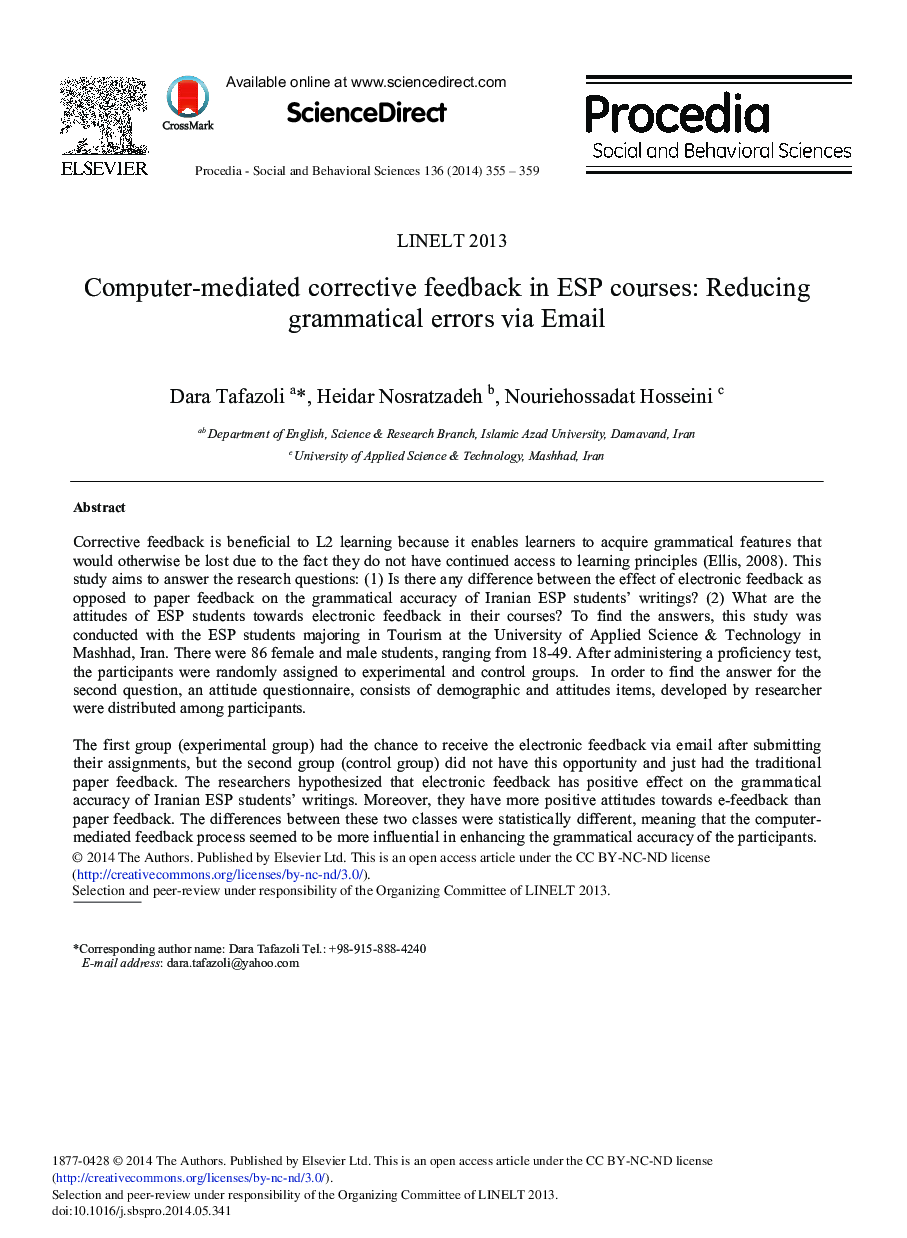| Article ID | Journal | Published Year | Pages | File Type |
|---|---|---|---|---|
| 1113573 | Procedia - Social and Behavioral Sciences | 2014 | 5 Pages |
Corrective feedback is beneficial to L2 learning because it enables learners to acquire grammatical features that would otherwise be lost due to the fact they do not have continued access to learning principles (Ellis, 2008). This study aims to answer the research questions: (1) Is there any difference between the effect of electronic feedback as opposed to paper feedback on the grammatical accuracy of Iranian ESP students’ writings? (2) What are the attitudes of ESP students towards electronic feedback in their courses? To find the answers, this study was conducted with the ESP students majoring in Tourism at the University of Applied Science & Technology in Mashhad, Iran. There were 86 female and male students, ranging from 18-49. After administering a proficiency test, the participants were randomly assigned to experimental and control groups. In order to find the answer for the second question, an attitude questionnaire, consists of demographic and attitudes items, developed by researcher were distributed among participants.The first group (experimental group) had the chance to receive the electronic feedback via email after submitting their assignments, but the second group (control group) did not have this opportunity and just had the traditional paper feedback. The researchers hypothesized that electronic feedback has positive effect on the grammatical accuracy of Iranian ESP students’ writings. Moreover, they have more positive attitudes towards e-feedback than paper feedback. The differences between these two classes were statistically different, meaning that the computer- mediated feedback process seemed to be more influential in enhancing the grammatical accuracy of the participants.
